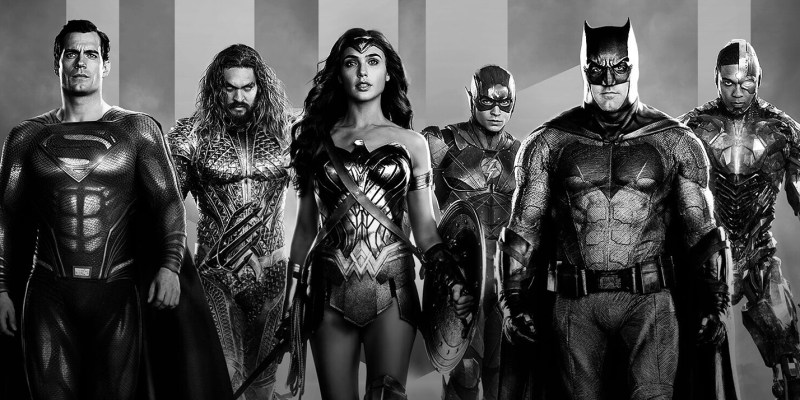It has been a chaotic week for Warner Bros. This extends to the company’s subsidiaries. James Gunn and Peter Safran’s management of the DC brand has hit a number of bumps.
Patty Jenkins has parted ways with the company over the planned third Wonder Woman movie. Initial reports suggested that Jenkins walked away, but Jenkins herself has subsequently denied these claims. Dwayne Johnson has been accused of leaking internal documents to the media in an effort to prove that Black Adam was actually marginally profitable. Apparently Jason Momoa is no longer playing Aquaman, despite headlining a billion-dollar solo movie.
This uncertainty extends to the two most popular characters in the company’s roster. There were reports that Gunn and Safran planned to incorporate Matt Reeves’ The Batman into a shared universe, which Gunn denied. Also, just weeks after appearing in the post-credits scene for Black Adam, quitting the fourth season of The Witcher seemingly to clear his schedule and announcing his triumphant return, apparently Henry Cavill will no longer be playing Superman in the shared universe.
This turmoil behind the scenes is enough to make a casual observer wonder whether any of this is worth it. Of course, there are bigger problems at Warner Bros., resulting from larger industry-wide trends. These decisions aren’t entirely the result of internal soap operas and clashing egos. They owe at least as much to phenomenally bad business decisions like “Project Popcorn.” Gunn and Safran’s approach feels like a hard reset for the company, a ground-up rebuild of one of its core brands.
However, there is a worry that everybody has missed the forest for the trees. Gunn and Safran appear to be tearing down the haphazardly constructed and internally contradictory shared universe that DC has put together over the past decade, in the hopes of assembling a new and cohesive continuity from scratch. Gunn has explicitly promised that future projects “will be connected across film and TV.” This sidesteps an obvious question: Why is DC so sure that it wants a shared universe?

On the surface, the answer is obvious. DC is chasing the success that Marvel Studios has enjoyed. By tying all of its movies together, Marvel has crafted the most successful cinematic franchise of all time. Locking all of these characters within the same sandbox, the studio has managed to use the box office success of smashes like The Avengers or Avengers: Age of Ultron to buoy features built around previously C-list properties like Ant-Man or Doctor Strange.
Other studios spent the better part of the last decade eagerly chasing that model. Universal boasted about its plans for a “Dark Universe,” while Paramount hoped to build out a Hasbro shared universe. Hell, Hyde Park Entertainment and Endeavor Content brashly promised a Rubik’s Cube shared universe of sorts. To date, the only franchise that has come close to building a comparable shared universe is The Conjuring, overseen by director James Wan, who just had his Aquaman franchise sunk.
However, just because nobody else has matched Marvel Studios doesn’t mean that it is impossible. That said, it is also worth acknowledging that there are signs that even Marvel might be struggling with its shared universe model. It is important not to overstate or exaggerate this though. The company is still hugely profitable. It is still a cultural juggernaut. It’s highly unlikely that Kevin Feige will find himself looking for a new job anytime soon. Still, there are rumblings of developing problems.
This year has been a good year at the box office, but Marvel isn’t dominating in the way that it had since The Avengers came out in 2012. It is performing well, to be clear; its three theatrical releases rank among the top 10 films of the year to date. However, none of those films have broken the billion-dollar threshold. Of course, these are turbulent times; audiences may be reluctant to come back to cinemas in the aftermath of the pandemic.

However, this defense isn’t quite convincing. So far this year, both Top Gun: Maverick and Jurassic World Dominion have grossed over a billion dollars worldwide. James Cameron’s Avatar: The Way of Water seems almost certain to match them. It’s particularly surprising that a cameo-laden movie like Doctor Strange in the Multiverse of Madness or a sequel to a landmark cultural event like Black Panther: Wakanda Forever couldn’t make it across that particular finish line.
There are other indicators the sheen might be coming off the Marvel Studios machine. Both Rotten Tomatoes and Metacritic suggest the company’s recent films received colder receptions from critics. Both Doctor Strange in the Multiverse of Madness and Thor: Love and Thunder received a low-for-the-universe CinemaScore of “B+.” Recent Marvel films have also had larger second-weekend drops, suggesting cooler word of mouth and a diminishing audience outside hardcore fandom.
Polling done by the company Morning Consult suggests that even the company’s hardcore faithful are feeling a little bit worn out. In July 2022, a poll of self-identified fans reported that nearly a third of them (31%) were worn out by the volume of movies and shows tied together in the shared universe, “getting a little tired of so many of them.” While previous reports of “superhero fatigue” have been somewhat overblown, this is a poll conducted using scientific methodology.
The most successful film of recent years to be associated with the Marvel Studios brand was Spider-Man: No Way Home, a film produced by Sony Pictures to celebrate its own Spider-Man franchise. No Way Home often feels like a “divorce movie,” which relegates crossover character Stephen Strange (Benedict Cumberbatch) to another dimension for most of the second and third act. It ends with the memory of Spider-Man (Tom Holland) erased from everybody in the shared universe.

There is perhaps some indication that audiences might be gravitating towards films that push away from modern shared universes. Outside of No Way Home, the most successful superhero movie of 2021 was the throwback Venom: Let There Be Carnage, which outgrossed all of Marvel Studios’ offerings for that year. This year, Top Gun: Maverick, Jurassic World Dominion, and Avatar: The Way of Water are all more conventional sequels than shared universe films.
Once again, to be clear, this is not to suggest that the Marvel Cinematic Universe is in trouble or anything so melodramatic. Instead, taken together, these trends suggest that these films are less “special” than they once were. This is just another franchise, like any other. The shared universe isn’t necessarily something that enhances the performance of these individual films. Indeed, there is some suggestion that it might even hamper them.
After all, forcing these movies to conform to a standardized model, visually and aurally, limits the way in which stories can be told. It prevents innovation and experimentation and traps these stories in familiar holding patterns. What does Shang-Chi and the Legend of the Ten Rings offer that other earlier Marvel Studios origin stories like Ant-Man or Captain Marvel don’t? There is little room for these movies to be bespoke or personal in the way that Maverick or even The Way of Water is.
On some level, DC must be aware of this. Many of the brand’s biggest successes have existed outside of any attempt to build a shared universe. Richard Donner’s Superman and Tim Burton’s Batman didn’t need to cross over to become cultural and commercial phenomena. More recently, Todd Phillips’ Joker was an R-rated movie that grossed over a billion dollars on a $55M budget, earned a Best Picture nomination, and saw Joaquin Phoenix take home the Best Actor statue.

Matt Reeves’ The Batman was met with rave reviews, ranking it “among the best of the genre.” It outgrossed Black Adam, a movie that was more overtly tied to the idea of a shared DC universe. Joss Whedon’s Justice League was a critical and commercial bomb tailored to a studio-mandated shared universe, but Zack Snyder’s four-hour restoration of (or elaboration upon) his version was praised by Matt Zoller Seitz as “the kind of brazen auteurist vision that Martin Scorsese was calling for.”
This has been one of the big differences between DC and Marvel. Stan Lee, Jack Kirby, and Steve Ditko designed the Marvel Universe as a single cohesive entity. In contrast, the DC universe evolved in fits and starts. It was never designed to be a single shared continuity. Characters were often shoehorned in after corporate acquisitions, creating all sorts of redundancies. In the comics, DC has had to repeatedly reboot to get its shared universe to align, and it has never consistently worked.
Even in the world of comics, it is arguable that many of the most iconic comic book stories were published by DC, but they occurred outside the continuity of their shared universe: Watchmen, The Dark Knight Returns, Kingdom Come, New Frontier, All-Star Superman, The Sandman. Marvel doesn’t really have any runs that are broadly accepted as measuring up to those in terms of quality and impact; the exception might be Alan Moore’s tenure on Miracleman, which is also outside continuity.
With all of this in mind, it is absurd that Warners seem intent on throwing a model that was working pretty consistently. Patty Jenkins’ Wonder Woman grossed over $800M and earned rave reviews. While Wonder Woman 1984 underperformed, it seems unfair to blame Jenkins’ movie for being a sacrificial lamb and canary in the coalmine for the doomed “Project Popcorn.” James Wan and Jason Momoa took Aquaman, a pop culture joke, and made over a billion dollars.
Gunn and Safran have found themselves in the unenviable position of trying to get a house in order while the house is also on fire. However, there is also a sense that the pair might be throwing the baby out with the bathwater as they plan for the future of this gigantic enterprise. Given the company’s track record and the current state of the industry, why are they so certain that the brand’s future lies with the hottest idea of 2012?
